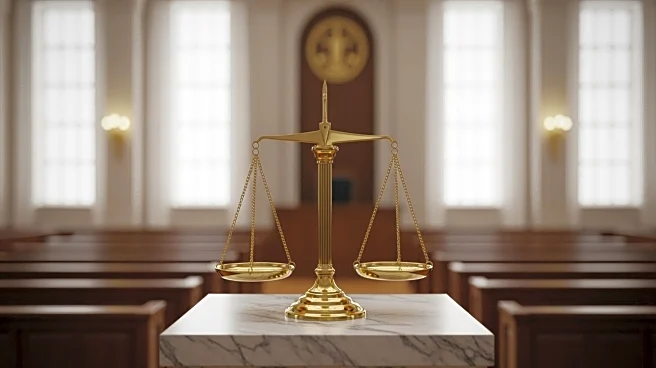What's Happening?
The state of Illinois has filed a request with the U.S. Supreme Court to deny the Trump administration's attempt to deploy National Guard troops to the Chicago area for immigration enforcement. This legal action follows a temporary restraining order issued
by U.S. District Judge April Perry, which the Trump administration is appealing. Illinois argues that the administration's claims of violence and protests do not justify the deployment of troops, as the situation in Illinois differs from other areas like Portland, where federal intervention was previously authorized. The state contends that the administration's request lacks a factual basis and infringes on constitutional rights.
Why It's Important?
This legal battle represents a significant confrontation over the limits of federal authority and the use of military forces in domestic law enforcement. The outcome could set a precedent for how the federal government can respond to protests and immigration enforcement in states that oppose its policies. The case also highlights the tension between state and federal governments, particularly in areas with strong opposition to the Trump administration's immigration strategies. The decision could impact the balance of power between state rights and federal intervention, influencing future policy decisions and enforcement actions.
What's Next?
The Supreme Court is expected to make a decision on whether to grant the Trump administration's request for National Guard deployment. The court's ruling will be closely watched as it could have far-reaching implications for federal-state relations and the administration's ability to enforce immigration laws. Stakeholders, including civil rights groups and local governments, are likely to respond based on the court's decision, potentially leading to further legal challenges or policy adjustments.















